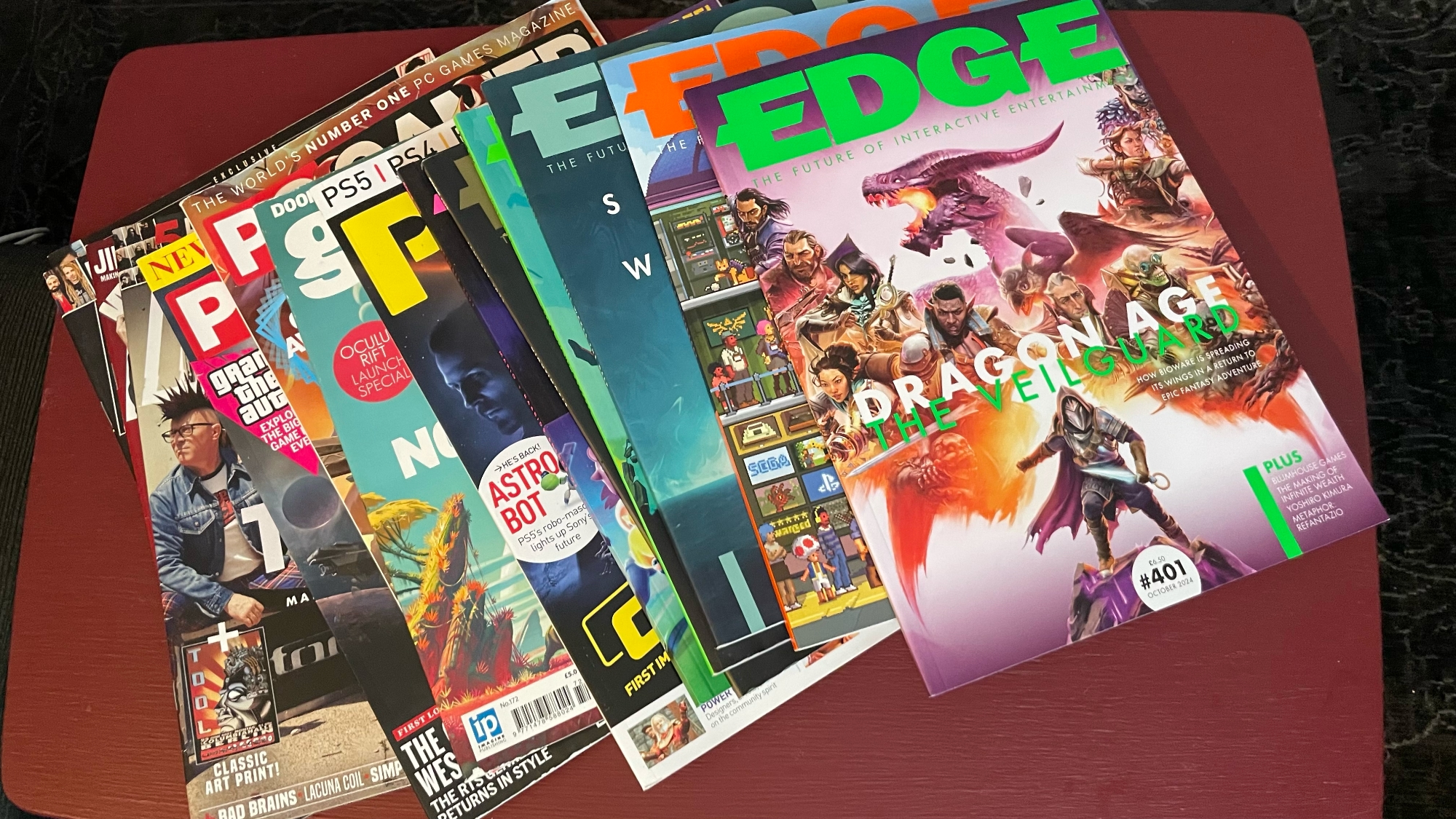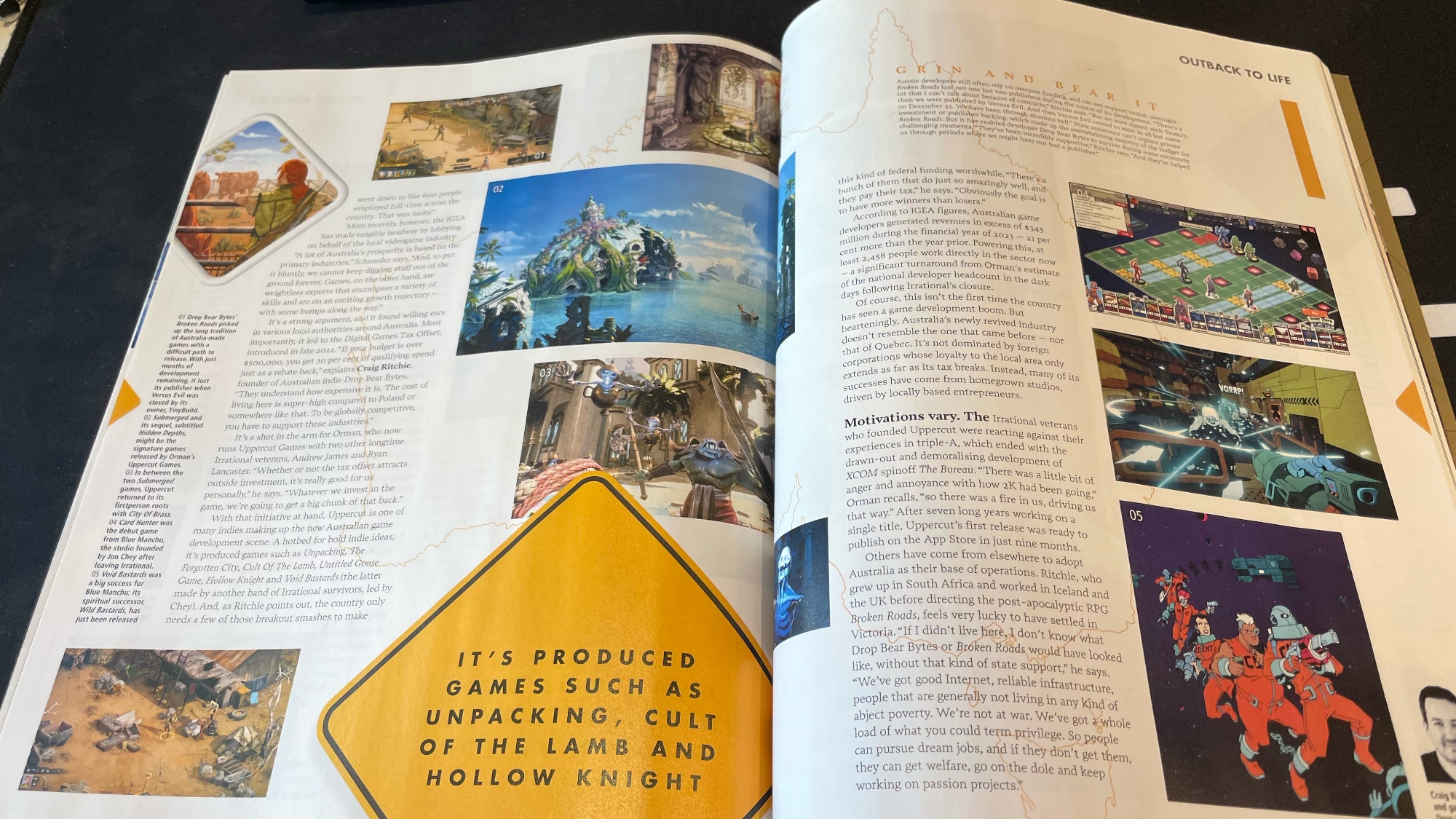Nobody is Taking My EDGE Away

I have rediscovered gaming magazines! It happened entirely by accident, during one of my many flights from London to Oslo. Attempting to stifle the tedium of finding myself in Heathrow Terminal 2 yet again, I was casually perusing the magazines in a WHSmith and came across a copy of Edge Magazine. Edge had always been a presence in the magazine racks I used to trawl through as a child, but I never picked one up as its more eloquent aesthetic exuded a certain intimidating sophistication that didn't enthuse my younger self (read: it looked kinda boring). I rather opted for an Official PlayStation Magazine or Incite PC Games or the like, with their multi-colour covers and attached demo disks. Having not looked at magazines for the greater part of a decade I found it fascinating to encounter this relic from the past. For whatever reason, be it the mercy of the gods or the editorial team's capability, Edge seems to have survived the slow death of print media that has taken many of my childhood favourites. My curiosity was piqued, so here I was, in the year of our lord 2023, buying a gaming magazine.
Reading it was a mix of novelty and nostalgia, reminding me of the many hours I spent poring over the magazines of my past. In those pre-Internet-video days there was something special about having to imagine how a game felt to play by reading the description and looking at the pictures. We now live in a world where we are one quick search away from footage of pretty much every game ever made, so being back to the limitations of static text and images was a fascinating reminder of how things used to be.
But it felt markably different somehow. Different from the publications of the past whose main selling point was exclusivity, of being first or being the only place where such information could be found. They would plaster their pages with grainy screenshots and wild speculations, enticing young readers to purchase them for the promises of a glimpse into what was coming. In contrast, the modern magazine lives in a world where any information it can provide can easily be found elsewhere, usually available online weeks before the magazine is even available for purchase. In this terrible future we live in, what could a magazine possibly offer me?
Reading through that issue of Edge gave me the distinct feeling that they are keenly aware of this brave new world. Of course they're not going to compete on timeliness, on exclusivity, on fidelity, or anything that can be better supplied by the almighty Internet. What I found instead was a quality of writing that was a refreshing take on games journalism. It may be that Edge has always had this metered, calm, and curious tone when discussing games and the people who make them, but I appreciated its complete lack of sensationalising and how it seemingly took its time in showing me things it found to be interesting. If I want news and hype there are countless sources online, but if I want information and opinion that has had time to be thoroughly digested I'm welcome to keep reading.

Another aspect that I enjoyed, which resulted in me buying another dozen or so magazines over the course of the next year, was that the reading experience was incredibly pleasant. Not only was the tenor of the articles calm and lacking of any hyperbolic "click baity" wording, but there were no distractions getting in my way. No popups asking me to subscribe to their newsletter, no auto-playing videos, no overlay telling me to login to keep reading, no polls or links to other articles injected in between two paragraphs. Just images and text that I could ingest at my leisure. The full-page ads that peppered the magazine were similarly static and easy to ignore. And not once did the magazine hijack my ability to go back to a previous page. Having spent so much time of my life on the Internet, with its slow decline into enshittified commercialisation, I had forgotten how nice it was to get away from it.
I can wax poetic about the virtues of print media all I like, but I should not ignore the looming shadow of nostalgia that permeates this experience. As someone who is slowly finding myself submerged in middle age I have to be honest that rediscovering habits I had when I was younger—and writing several hundred words justifying it—is quite telling. The burning desire to go back to seemingly simpler times is not unique to me, and I find myself looking back more often now than I did before. However, coupled with this deep-seated nostalgia is a another even deeper and more melancholy compulsion that motivates me. I am genuinely afraid of losing the things that I like.
It may be another side-effect of my age and having seen the things I like replaced with new things that I find confusing and frightening, but I feel that there is an insidious attitude which has crept into to the modern way we consume our media. With everything being online and heavily based on streaming and subscriptions, we have been trained to accept that everything is ethereal and transient. Our entertainment is behind paywalls we must regularly pump money into and even then there is no guarantee that the rights holders will bother keeping the lights on if it isn't sufficiently profitable. There have been many recent shut downs where people have lost access to entire libraries of purchased media, and when shutting down subscription-based services there seems to be no regard to the uniqueness of what is lost.
Recently, MTV News and Game Informer were unceremoniously killed by their owners without any forewarning, resulting in decades of work disappearing from the Internet. The fact that once-prolific publications are no longer around is a fact of the inexorable forward march of time, but to have lost everything in an instant without the opportunity to archive it for future enjoyment is evidence of the callous mindset of the soul-less VC firms that own these properties. Why would they care about what the fans are losing if they already have such low regard for their actual employees? It's exhausting and saddening to know that the things I enjoy can disappear at any moment.
I can't save everything. In all respects I can't actually save anything in the vast sea of media that lives on the Internet. The closest I can get is by keeping local copies or donating to Internet Archive so that work is done to ensure that our digital past isn't forgotten. However, I can keep the things that I actually own, like physical media which resides in my possession and which, barring theft or accident, aren't likely to one day be unavailable. I recognise that this fear of loss may be driven by my personal experiences and increasing age, but I am in a position to alleviate my anxiety and in the process perhaps rediscover something enjoyable.
So here I am, in the year of our lord 2024, buying a subscription to a gaming magazine. Partly to have something in my hands that feels like it won't evaporate without notice, but also because it's really nice to read print media. It looks nice on my shelf, it lacks all the distractions that websites insist on plastering themselves with, and it contains a style of writing that resonates with what I actually want from games journalism. I find myself eager to dig into the latest Edge every month, and I recommend that you give it a try!